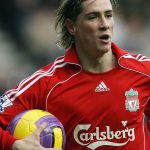
Why Reebok has been a meteor in football
From the ascent with Bolton, City and Liverpool to the sponsorship of the American leagues
May 2nd, 2020
On April 11, 2006, 58 days after the start of the German World Cup, Thierry Henry announced that he had signed a five-year contract with Reebok: therefore, in Germany, it would have been the last international tournament in which Nike would have worn. From August 1, in fact, the Frenchman would become the global and globalized face of the ''I am what I am'' campaign together with Allen Iverson, Jay-Z and 50 Cent: ''We will market the name of Henry in order to make understand Europe and the world the synergy that has been created between Reebok and Thierry. His civilian commitment to racism and other important social issues perfectly embodies the ideals we intend to convey with our campaign'' says President and Chief Executive Paul Harrington enthusiastically.
To snatch one of its best-known testimonials from Nike was the way in which the English company - purchased by adidas for € 3 billion in January - tried to recover that dominant position in the world of football that, from the second half of the 90s in the early 2000s, he had the Reebok brand associated with the Premier League: since 1997, Bolton had played his home games at the ''Reebok Stadium'' and in 2003, in addition to the new agreement with Manchester City, there had been the renewal - for six years at 100 million pounds in total - of the one already signed with Liverpool in 1996. All this having already signed some players symbol of the English league such as Jay-Jay Okocha, Peter Schmeichel, Andy Cole, Dennis Bergkamp and above all Ryan Giggs.
In 2009, with Henry moving from Arsenal to Barcelona, an ideal handover takes place with the Welshman, honored the year before with a special version of the "Sprintfit Pro" bearing the inscription "Moscow 2008 759" on the tongue to celebrate the record of appearances for the Manchester United shirt reached at the Champions League final in Moscow. On the eve of the final in Rome between Barça and Red Devils, in a commercial that seems almost to make the verse to that with Michael Jordan and Mia Hamm for Gatorade, Giggs and Henry present the ''Instante PRO'' in two color variations, at I shout '' everything you can do I can do it better ''.
Both are the protagonists, with Casillas and Shevcenko, also of the Play Responsibly campaign: in one of the dedicated spots, shot in the post-apocalyptic context of a deserted area of Barcelona, we see Henry demolishing buildings under construction and abandoned cars simply kicking the ball , pretending amazement at the power and precision of his right. And always the Frenchman would have been the face chosen by the company to relaunch the very American fusion between sport and streetwear also in Europe, culminating in the presentation of the "Zigtech", the running shoe presented in March 2010 in Barcelona in a curious and fun way athletic contest with Lewis Hamilton.
Everything seems ready to challenge the industry giants and return to the glories of a not so distant past, when Reebok was synonymous with innovation and courageous experimentation regarding the design of some of the shirts that had marked a generation. And instead, the ten years of 2000 are the background to the crisis of the brand and its progressive disengagement for what concerns team sports: the end of the ten-year contract with the NFL in 2011 and having left adidas to manage the agreements with NBA and NHL, coinciding with the rebranding of the logo and the drop in revenues following the merger with the German brand - over 500 million less between 2006 and 2014 - mean the disappearance from the most important markets.
Football is certainly no exception: in 2006 the collaboration with Liverpool was interrupted in search of a kit that best fits the new canons of fashion and wearability within the pitch; in 2011, after joining the New York Red Bulls, Henry decided to sign with Puma, anticipating what will be the choice of Casillas with adidas by a year; and, in 2014, four years after the release of the gold-colored ''RG 800'' created specifically for him, Ryan Giggs also abandoned the sponsor who had accompanied him throughout his career, marking the first steps as a coach with a anonymous pair of black and white ''Premier'' Nike and, in fact, sanctioning the end of an era.
Today Reebok is totally fitness-oriented and, as far as football is concerned, it lives only among the memories of vintage enthusiasts and in the futuristic concepts of Nivelcrack. Between 2014 and 2015, when the sale (which would not materialize) to the consortium of investors led by the Hong Kong investment fund Jynwel Capital seemed imminent, the Wall Street Journal had underlined how the Foster brothers' brand could have said more its if it had been managed independently. Maybe with the possibility of finding another Giggs to bet on, another Henry to snatch from the competition, another championship to dress up like Chile in 1998 or Argentina in 2001: in a unique and unforgettable way even in a market that seems to have it done.



































